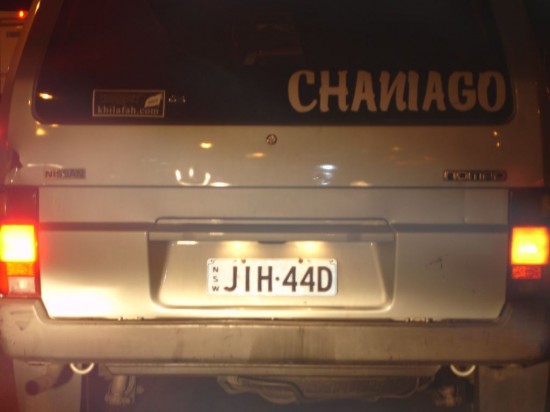 A Pakistani-born migrant who made the top ranks of environmental engineering is set to become the first Muslim woman elected to an Australian parliament, after the NSW Greens chose Mehreen Faruqi to fill a state upper house vacancy. The Greens said yesterday that Dr Faruqi had been preselected by a mail ballot of all NSW members of the party, from a field of seven in a contest in which only women could run.
A Pakistani-born migrant who made the top ranks of environmental engineering is set to become the first Muslim woman elected to an Australian parliament, after the NSW Greens chose Mehreen Faruqi to fill a state upper house vacancy. The Greens said yesterday that Dr Faruqi had been preselected by a mail ballot of all NSW members of the party, from a field of seven in a contest in which only women could run.Islamic Friendship Association spokesman Keysar Trad yesterday hailed the move as a major advance in demonstrating opportunity for Muslim women in Australia, but warned Dr Faruqi could have difficulty reconciling the teachings of Islam with Green policies, such as the party's support for gay marriage.
Dr Faruqi indicated she will fully take on board the leftist agenda, saying she would be "fighting for gender equality and equal marriage" and taking up "the campaign against coal-seam gas mining".
Dr Faruqi called herself a practising Muslim, but said she came from a modern stream of Islam in Pakistan and did not, for example, wear a niqab.
She steered around whether she, like former Greens NSW leader and now senator Lee Rhiannon, supported the international Boycott, Divestment, Sanctions campaign against Israel, saying she supported the Green policy of promoting human rights for Palestinians and Israelis.
Mr Trad said the elevation of Dr Faruqi would encourage Muslim women to enter politics. But he said Islamic leaders remained absolutely opposed to homosexuality and gay marriage, creating a dilemma for Dr Faruqi. He said, "It will be something that is likely to test her . . . we will be watching to see whether she will allow her beliefs as a Muslim to succumb to the party policy."
The Greens, often criticized as the party of trendy inner-city elitists, claimed Dr Faruqi as another triumph -- she will become the first Greens MP in NSW from a migrant background, which she plans to use to help the party build links with migrant communities in west Sydney.

 Dozens of senior figures from the Muslim community will attend a crisis meeting tomorrow night in the wake of the sentences handed down this week to five NSW men convicted of terrorism offences. The meeting will be held at the nation's largest mosque, in Lakemba in Sydney's southwest, and will be hosted by Sheik Taj Din al-Hilali -- formerly Australia's most senior cleric. Several other senior imams are expected to attend.
Dozens of senior figures from the Muslim community will attend a crisis meeting tomorrow night in the wake of the sentences handed down this week to five NSW men convicted of terrorism offences. The meeting will be held at the nation's largest mosque, in Lakemba in Sydney's southwest, and will be hosted by Sheik Taj Din al-Hilali -- formerly Australia's most senior cleric. Several other senior imams are expected to attend. Former Guantanamo Bay detainee
Former Guantanamo Bay detainee  Australias Muslims gathered on Friday for prayers at mosques around the country under a suspicious spotlight yet again after another radical cleric inflamed tensions with his extremist views. The widening gulf between Australias small, mainly Sunni, Muslim community of some 280,000 people, and the rest of the country is leaving many Muslims feeling under siege and young Muslims trapped between two cultures - Islam and Australia.
Australias Muslims gathered on Friday for prayers at mosques around the country under a suspicious spotlight yet again after another radical cleric inflamed tensions with his extremist views. The widening gulf between Australias small, mainly Sunni, Muslim community of some 280,000 people, and the rest of the country is leaving many Muslims feeling under siege and young Muslims trapped between two cultures - Islam and Australia.  BESIEGED Muslim cleric Sheik Taj al-Din al-Hilaly is expected to make his first public appearance since his dramatic collapse by attending Friday prayers tomorrow. As the controversial cleric yesterday checked out of Canterbury Hospital in Sydney and into a private hospital to continue recuperating, the Islamic community was abuzz with speculation he will attend Lakemba Mosque tomorrow.
BESIEGED Muslim cleric Sheik Taj al-Din al-Hilaly is expected to make his first public appearance since his dramatic collapse by attending Friday prayers tomorrow. As the controversial cleric yesterday checked out of Canterbury Hospital in Sydney and into a private hospital to continue recuperating, the Islamic community was abuzz with speculation he will attend Lakemba Mosque tomorrow.